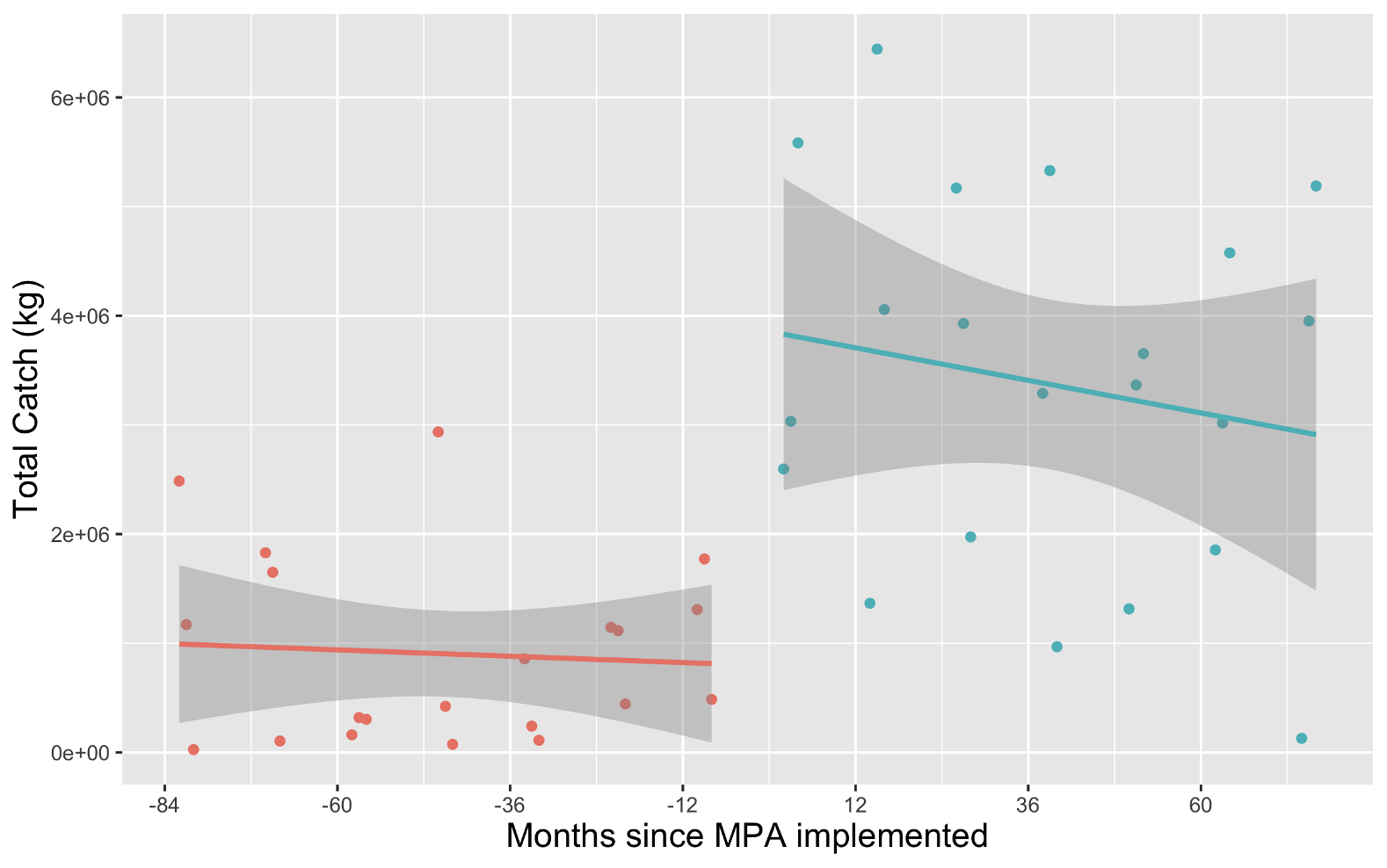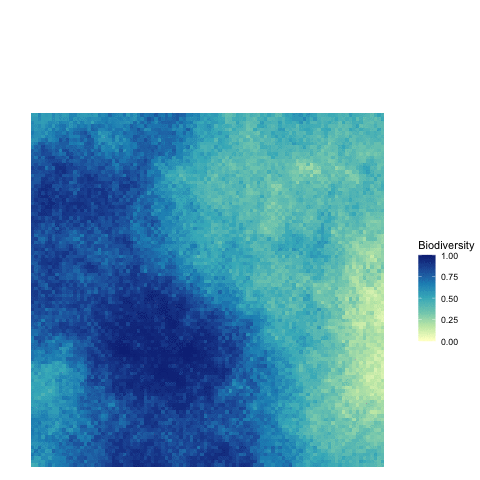research
2023
-
 Evidence of rebound effect in New Zealand MPAs: Unintended consequences of spatial management measuresTai Lohrer, Judi E. Hewitt, Andrew M. Lohrer, Darren M. Parsons, Joanne I. Ellis, and Fabrice StephensonOcean & Coastal Management, May 2023
Evidence of rebound effect in New Zealand MPAs: Unintended consequences of spatial management measuresTai Lohrer, Judi E. Hewitt, Andrew M. Lohrer, Darren M. Parsons, Joanne I. Ellis, and Fabrice StephensonOcean & Coastal Management, May 2023Fish size and fish biomass have been shown to increase inside the borders of Marine Protected Areas (MPAs) after the cessation of fishing. However, the effects of marine protection on fishing fleet behaviour and fish catches outside of MPAs are less well understood. Here we investigated changes in total catch and Catch per Unit Effort (CPUE) of bottom trawlers outside the borders of offshore MPAs in New Zealand. We used Regression Discontinuity in Time (before versus after protection) on both aggregate and individual trawl event data for one Marine Reserve, two Benthic Protected Areas, one Closed Seamount Area and one Marine Mammal Sanctuary. Despite the various forms of protection that reduce the total fishable area, total catch tended to increase after MPA implementation. Yet, there was little evidence that this was due to the net-movement of fish from larger populations within MPA boundaries i.e. spillover. Rather, the increases in catch in the post protection period appeared to be a consequence of changes in the behaviours of commercial fishers. This may be an unintended and previously unreported negative consequence of marine protection that could dampen some of the many benefits of MPAs.
2022
-
 A Multi-criteria Decision Framework for Marine Protected Area PolicyTai LohrerUniversity of Auckland, Department of Statistics Honours Thesis, Dec 2022
A Multi-criteria Decision Framework for Marine Protected Area PolicyTai LohrerUniversity of Auckland, Department of Statistics Honours Thesis, Dec 2022Marine Protected Areas have been shown to be effective policy tools that confer environmental, economic and socio-cultural benefits. However, as with any policy that affects multiple stakeholders, trade-offs must be made between agents with disparate interests and goals. This paper utilises Multi-Attribute Utility Theory to develop a multi-criteria framework intended to inform decision makers of optimal policies based on their subjective preferences. Using an Ecosystem Based Management approach where multiple uses, knowledge types and interactions between ecological components are considered, the user is presented with utilities generated through simulation across ecological, economic and social dimensions that demonstrate how optimal policies may change with their weighting preferences. Novel to applications in marine policy, this paper explores how these utilities change with temporal consumption preferences and time spans under consideration. An application of this framework to a theoretical study area illustrates the relevance of such a tool for marine spatial planning.